Word Recognition Alphabet Worksheets for 3-Year-Olds
7 filtered results
-
From - To
Enhance your 3-year-old's early literacy skills with our engaging Word Recognition Alphabet Worksheets! Designed to spark curiosity and make learning fun, these worksheets introduce young learners to letters and familiar words through vibrant images and simple text. As children work through the activities, they'll develop essential word recognition skills, laying a strong foundation for reading and writing. Our worksheets encourage interactive learning, helping kids connect words with their meanings in an enjoyable way. Perfect for parents and teachers alike, these resources will ignite your child's love for language and boost their confidence in word recognition. Start their learning journey today!
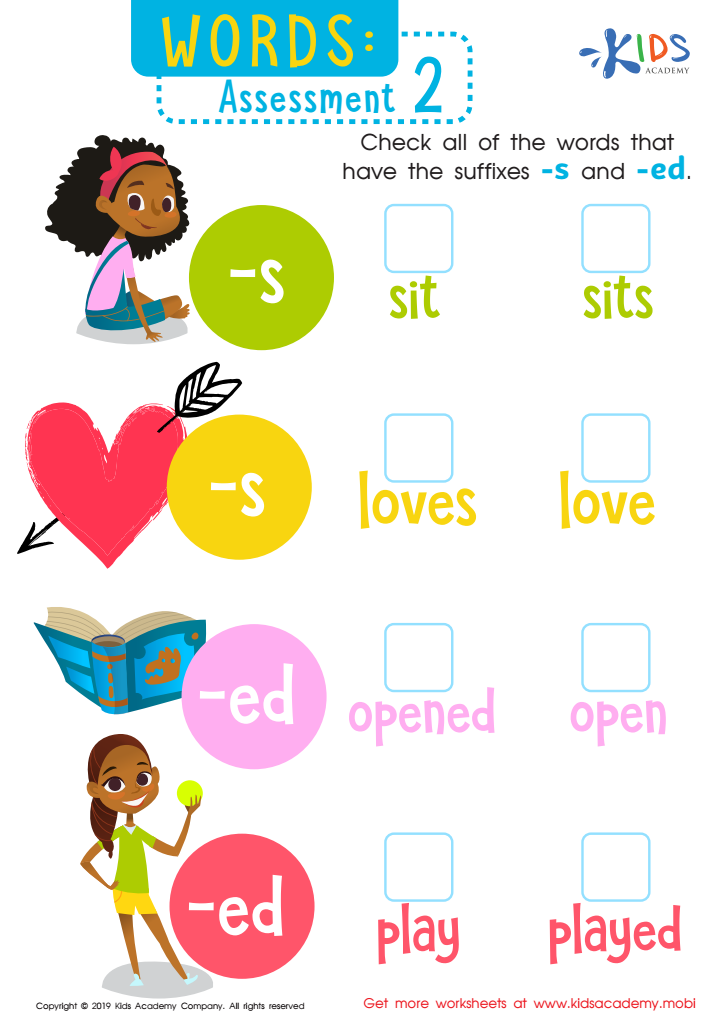

Words: Assessment 2 Worksheet
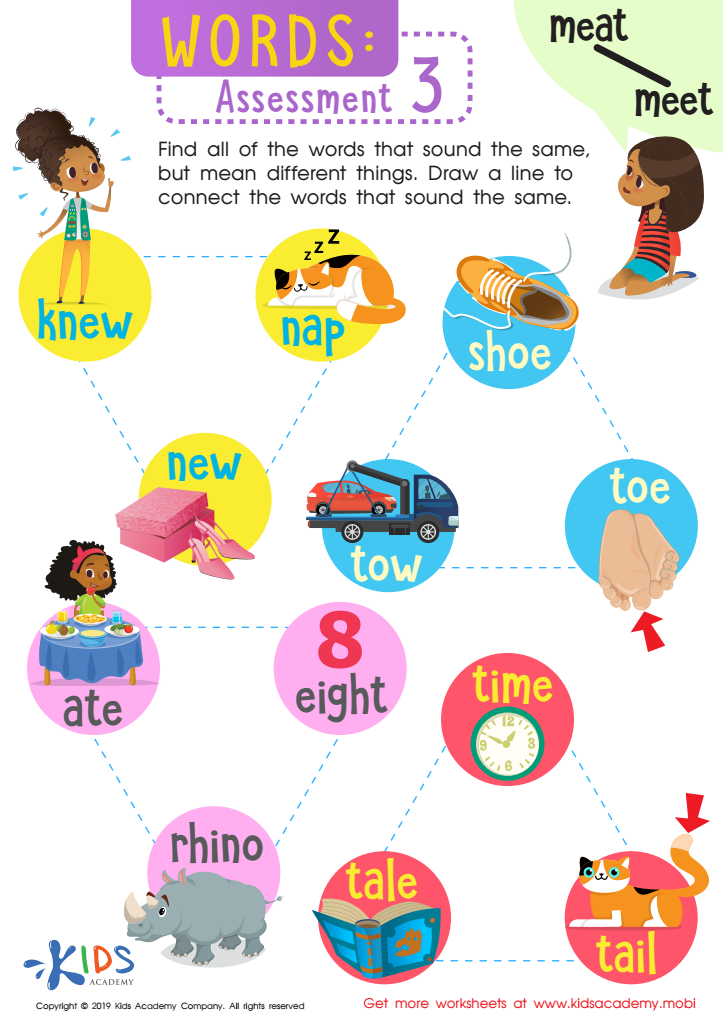

Words: Asessment 3 Worksheet
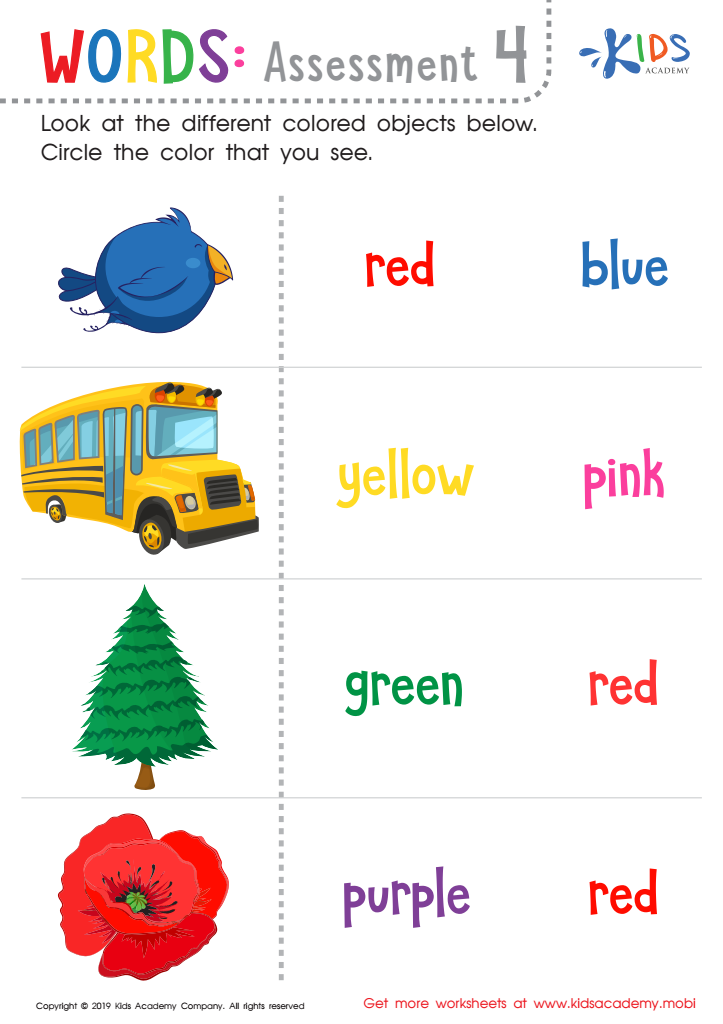

Words: Assessment 4 Worksheet
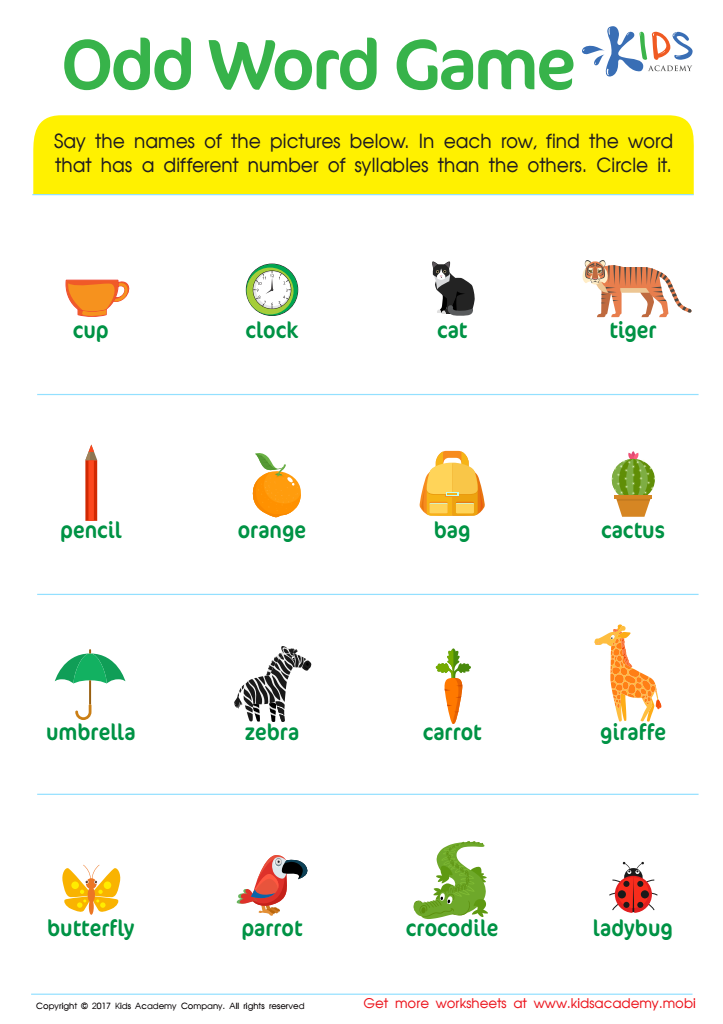

Count Syllables: Odd Word Game Worksheet
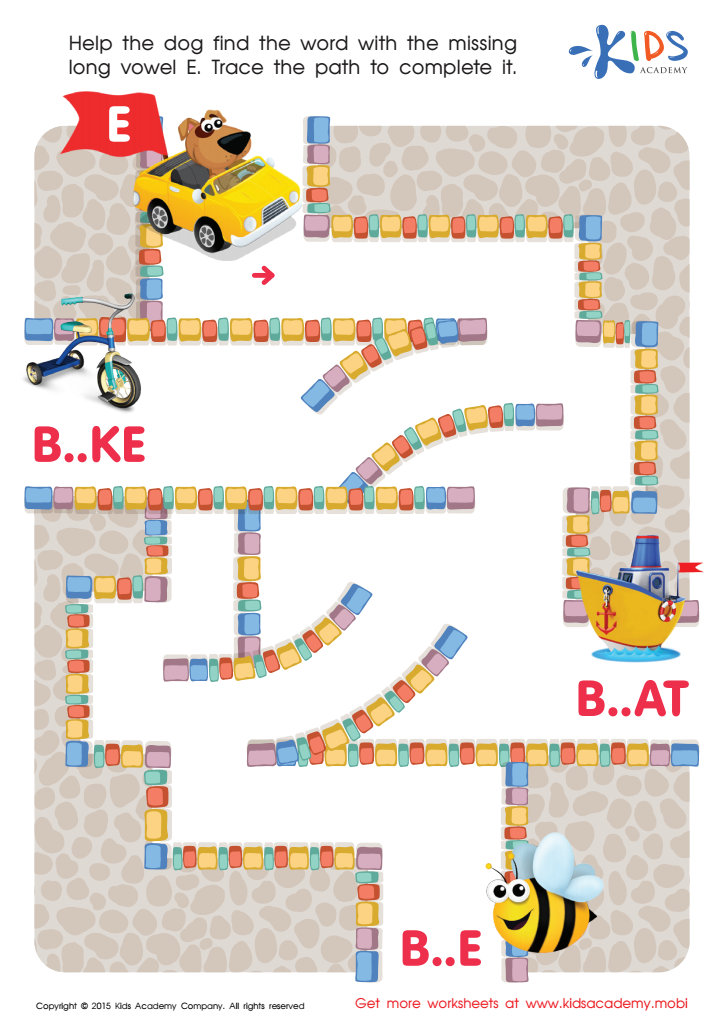

Long Vowel Sound E Worksheet
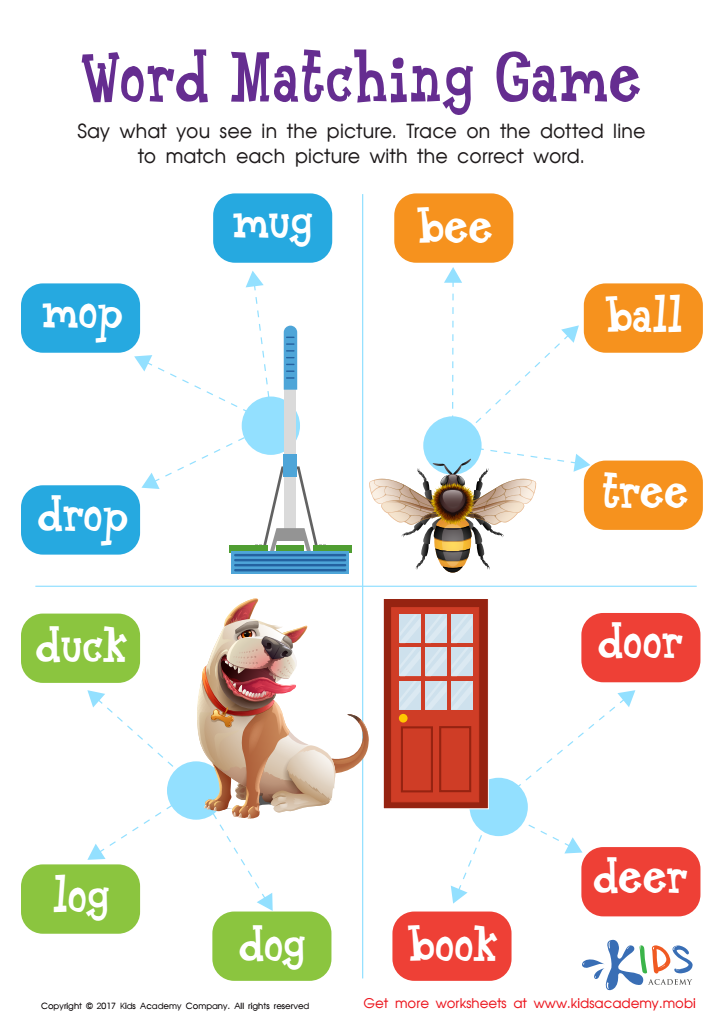

Word Matching Game Worksheet
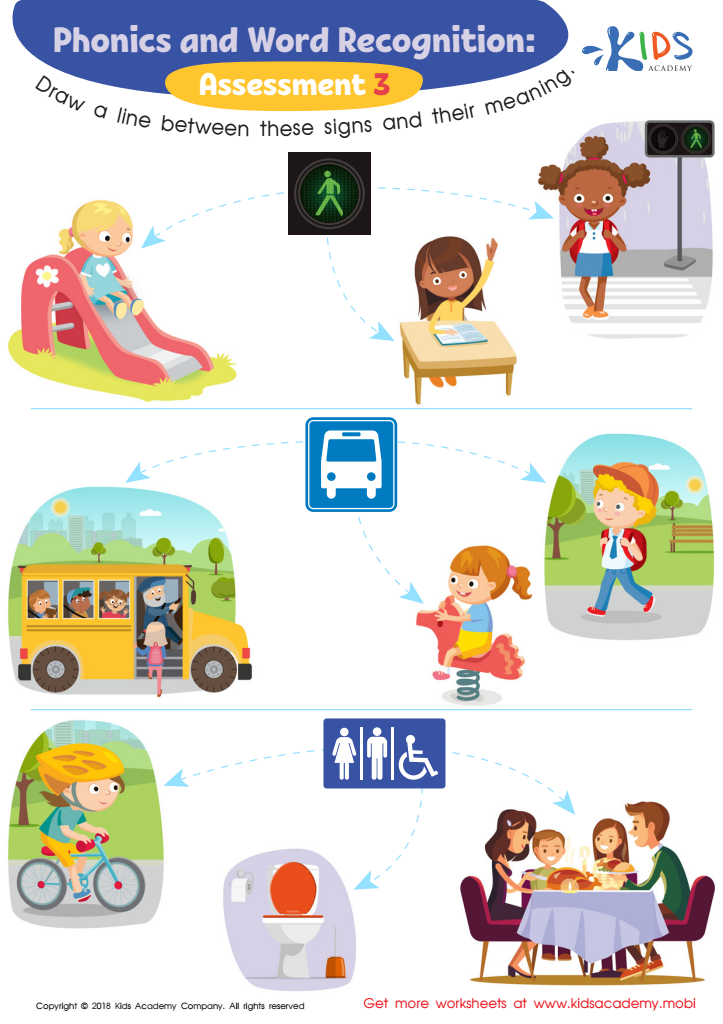

Phonological Awareness: Assessment 3 ELA Worksheet
Word recognition is a fundamental skill crucial for early literacy development, particularly for 3-year-olds. At this age, children are entering a critical period for language acquisition. Understanding the Word Recognition Alphabet can significantly enhance their reading readiness, allowing them to recognize words visually rather than just phonetically. This dual approach to word recognition combines sight and sound, providing a more robust foundation for future reading skills.
Parents and teachers should care because early exposure to word recognition fosters a love for reading and learning. When children can recognize familiar words, their confidence boosts, making them more likely to engage with books and storytelling. Additionally, word recognition helps develop phonemic awareness, vocabulary, and comprehension skills, creating a stronger base for eventual reading and writing proficiency.
Moreover, engaging with the Word Recognition Alphabet can improve communication skills, encouraging children to express themselves better and interact meaningfully in conversations. This early investment in literacy can lead to long-term academic success, reducing the risk of reading difficulties later on. Overall, nurturing these skills at a young age is essential for fostering inquisitive, capable learners who thrive in future educational environments.

 Assign to My Students
Assign to My Students


















